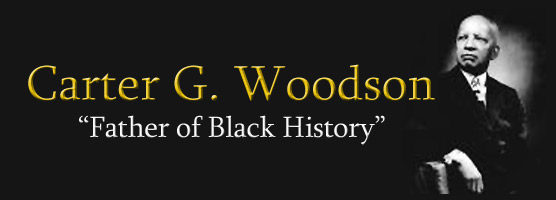Compiled by Judy Diggs

No one has played a greater role in helping all Americans know the black past than Carter G. Woodson, the individual who created Negro History Week in Washington, D.C. Woodson was the second black American to receive a Ph.D. in history from Harvard—following W.E.B. Du Bois by a few years. To Woodson, the black experience was too important simply to be left to a small group of academics. Woodson believed that his role was to use black history and culture as a weapon in the struggle for racial uplift.
This led Woodson to create Negro History Week in February 1926, to ensure that school children be exposed to black history. Woodson chose the second week of February in order to celebrate the birthday of Lincoln and Frederick Douglass. The response to the event was overwhelming — as educators, scholars, and philanthropists stepped forward to endorse the effort.
Fifty years later, coinciding with the nation’s bicentennial and in the wake of the civil rights movement, the celebration was expanded to a month after President Gerald R. Ford decreed a national observance in 1976. He called on the public to “seize the opportunity to honor the too-often neglected accomplishments of Black Americans in every area of endeavor throughout our history.”
Although we’ve been doing this for close to 100 years, there are many aspects of the history being heard for the first time by both Black and White Americans. Most of us are reared in an intellectual climate that either mock the contributions of African American people or neglects those contributions altogether. Popular culture is quick to portray African Americans as unintelligent, lazy, violent, and criminals as well as impoverished.
In this respect, Black History Month is essential to provide people with information that challenges stereotypes, revises their thinking and behavior, and removes the blinders that create cultural biases. It also provides the nation with an opportunity to hear the voices and experiences of people who have historically been oppressed, ignored, marginalized, and overlooked in our country.
Today, the month-long celebration offers an opportunity for Blacks and Whites to reimagine what possibilities lie ahead. It broadens the imagination of Black children to realize that their forebears were creators of mathematics, astronomy, medicine, technology, music, and many other notable areas of influence. It debunks the myths of the West and enlightens us to the worth and humanity inherent in all people–including people of African American ancestry. And for many, the forces that drove Woodson nearly a century ago to focus on Negro History are more relevant than ever.
As Lonnie G. Bunch III, Director of the Smithsonian Institution said at the opening of the Washington D.C.’s National Museum of African American History and Culture in 2016: “There is no more powerful force than a people steeped in their history. And there is no higher cause than honoring our struggle and ancestors by remembering”.
References: www.history.com; www.nbcnews.com; nytimes.com
